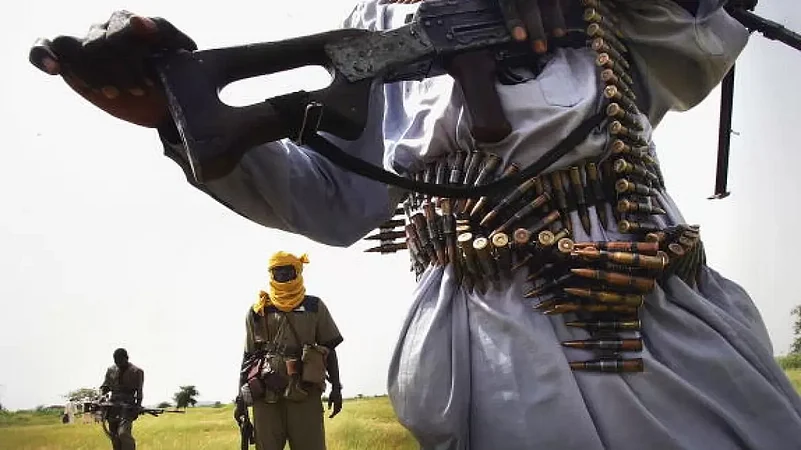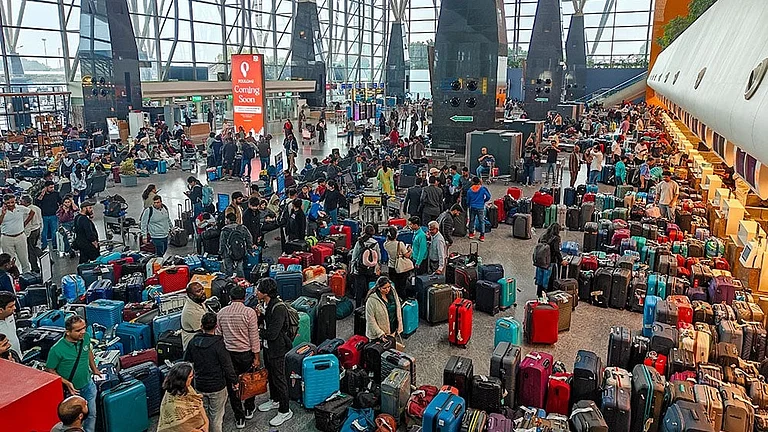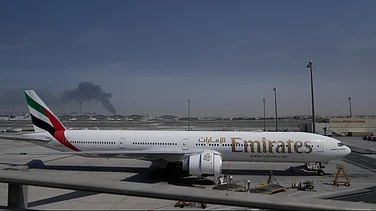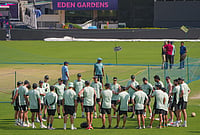In the last two years, the world witnessed two major wars – one in Ukraine and the other, recent one in Gaza – both of which are ongoing. But amid these, there were a number of other conflicts in lesser-developed countries. One such country is Sudan, in Africa, where nearly 6 million people have had to flee their homes amid a ruinous war between the Sudanese army and the paramilitary Rapid Support Forces (RSF). The war has entered its eighth month.
The war in Sudan has largely gone unnoticed amid a global discussion on Russia-Ukraine and Israel-Palestine. The battle gained brief international attention when foreigners were scrambling to get out of the country but reached a bloody stalemate with little heed from global communities.
The humanitarian crisis emerging out of it is unimaginable. While about 4.5 million people are internally displaced, as per the United Nations’ statistics, at least 1.2 people have had to flee to neighbouring countries like Chad, Egypt, South Sudan, Ethiopia and the Central African Republic (CAR). The overwhelming majority of these refugees (nearly 90 per cent in CAR) are women and children. Another 25 million people — more than half of the country's population — are in dire need of humanitarian aid.
The ongoing war erupted as a result of an early morning surprise attack on April 15 by the RSF on multiple Sudanese army bases, including in the capital city of Khartoum. The paramilitary had already claimed control over Khartoum International Airport, several military bases, and the presidential palace.
The fighting, one of the worst humanitarian nightmares in recent history, wrecked the country's health care system. More than 70 per cent of health facilities in the conflict zones were now out of service, resulting in outbreaks of cholera, dengue, malaria and measles, and high levels of malnutrition among children.
Since April, the war has claimed the lives of more than 9,000 people. More than 1,200 children under age five have died in nine camps in war-scarred Sudan in the past five months because of a deadly combination of measles and malnutrition, the UN's refugee agency said Tuesday. The UN’s children agency also warned that “many thousands of newborns” may die in Sudan by the end of the year because of a lack of access to treatment.
Meanwhile, reports of widespread killings, rapes, looting and destruction of villages in the conflict-hit zones have caused a bigger worry. A senior UN official, while speaking to reporters, warned that the violence in Sudan is “verging on pure evil”.
“We keep saying that the situation is horrific and grim. But, frankly, we are running out of words to describe the horror of what is happening in Sudan,” said Clementine Nkweta-Salami, the UN humanitarian coordinator for Sudan.
Rerun of 2003 Darfur Violence
Fears are rising within Sudan that the horrors of Darfur from 20 years ago are returning as RSF takes control of four out of five army bases in the area. Apart from horrific gender-based and sexual violence, there are also reports of ethnically-driven killings against the Masalit community of Darfur. The violence has been mostly blamed on the RSF, along with its allied Arab militias.
Refugees who escaped to Chad reportedly told the UN and other international agencies that ethnic cleansing was taking place in Sudan’s West Darfur as the RSF gained control over the main army base in the state capital, el-Geneina. According to the Global Centre for the Responsibility to Protect, the RSF went door-to-door in Ardamata, in West Darfur, rounding up and killing people from the Masalit ethnic group.
An investigation by the non-profit Centre for Information Resilience (CIR), whose Sudan Witness project has been monitoring human rights violations in the region, further confirmed this with the help of images collated from Ardamata that indicate attacks on civilians.
The attacks are reminiscent of the war in 2003 when hundreds of thousands of people were killed in a systematic genocide in Darfur amid fighting between non-Arab rebel groups and a militia known as the Janjaweed, which later grew into the RSF. Several Janjaweed leaders, as well as the president at the time, Omar al-Bashir, have been indicted by the International Criminal Court (ICC) for crimes against humanity, rape, forced transfer and torture, which they have denied.
The latest unrest in Darfur prompted the ICC's prosecutor to declare in July that he was investigating alleged war crimes and crimes against humanity in the latest fighting in the region.






















